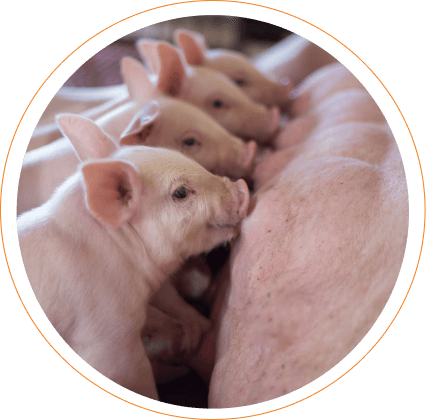Pork
Pigs
All fattening pigs are free to move within the facility.
Since 2012, BRF has been committed to adopting a collective gestation system as a mandatory rule for all of the Company’s expansion projects.
Adjustments to its current integration system started in 2014. Implementation is taking place gradually. Further information can be found at Our commitments.
BRF’S PRACTICES INCLUDE
No tooth-clipping or grinding on piglets. Grinding will only be carried out in extreme cases where the sow’s welfare is affected.
In 2020, 100% of the farming advisors started to use equipment for euthanasia in the field and more than 220 farming advisors received training to use the equipment. This is a special distinguishing feature and a demonstration of BRF's commitment to animal welfare.

Through its global animal welfare program, BRF stipulates that the maximum housing density for pigs in its facilities and those of integrated partners should be 0.33kg/m² for the nursery vertical system and 0.95m²/100kg for pigs in the finishing phase, following the European directive that is considered one of the best in the world. 100% of the animals housed in the nursery phase are within the maximum density stipulated.

100% of the animals are stunned before slaughter
Pigs are housed in resting crates for resting purposes, with access to water and monitored temperature. 100% of the animals are examined upon receipt at the plant and are managed by personnel trained on animal welfare.
